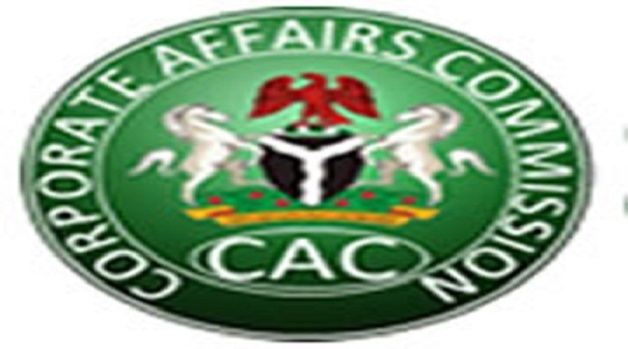News
Senate, CIBN Seek to End Malpractices in the Banking Sector

The Senate committee on Banking, Insurance and other Financial Institutions, chaired by Senator Adetokunbo Abiru and the Chartered Institute of Bankers of Nigeria (CIBN) have vowed to sanitize the banking sector and bring to book erring banks and their employees involved in any form misconduct.

The collaboration was cemented at the Senate during an interactive session between members of the committee and CIBN.
The umbrella professional body for bankers in Nigeria led by its President/Chairman of Council, Dr. Ken Opara met with the banking Committee to seek assistance of the Lawmakers in the passage of the proposed CIBN Act Bill and other key issues and initiatives affecting the banking and finance industry.
Senator Abiru emphasized the need to rid the banking industry of corruption and sharp practices which are inimical to the progress of the nation.
He said; “As lawmakers, we shall continue to ensure that the banking industry is properly regulated by enacting modern laws required to engender confidence in the industry as well as perform effective oversight over the regulators such as the CBN and the NDIC.
“We hope to partner with relevant professional bodies, especially the CIBN. I am happy to note that the process of amending the CBN Act of 2007 will be concluded soon.”
We shall equally fast-track the passage of other Bills meant to strengthen the financial services industry in Nigeria.
Abiru who is also a member of the institute assured of the Senate’s resolve to support the CIBN to solve the Nation’s inflationary and other prevailing economic crisis.
He said; “Your coming at a time the National Assembly is debating amendments to the CBN Act as well as other related issues to help the government and the CBN navigate the current economic challenges posed by rising inflation and persistent naira depreciation.
Harping on the need to pass the CIBN Act, First Vice President CIBN Prof. Deji Olanrewaju stressed that many corrupt bankers evade prosecution under the guise that they are not members of the CIBN.
Deji explained that by the time CIBN Act bill is passed bankers involved in malpractices will be brought to book under the CIBN Tribunal which he said has a competent jurisdiction like a Federal High Court.
He explained; “The tribunal according to the provisions of the act law 207 has power and competent jurisdiction like a high court which means that any judgment passed by the tribunal is like a judgment passed by the high court, so they have to go to court of appeal but lo and behold, majority of those that we ought to bring to book escaped on the pretext that they are not our members.
“They work in the bank and deal with money but they said they are not members and as a lawyer we know the importance of the jurisdiction. These people are working in the bank but their activities are affecting us globally, so we must do something tangible that will make us sanitise the system.
Without the amendment to that law there is nothing we can do. We also reach out to agencies like EFCC and ICPC that are working against malpractices.
In an earlier address, the President of the CIBN added that if the CIBN Act is amended, everyone working in the banking sector will be held accountable for misconduct or financial crimes.
He said; “In the current amendment, we want to capture everyone working in the banking industry in Nigeria for the purpose of upholding ethics and professionalism CBN, NDIC, and banks are to send reports of allegations of misconduct to the Institute.
Dr Ken also revealed the plans of the institute to expand its name and coverage. “The expansion of the Institute’s name to include ‘Finance” to conform to the Institute’s coverage and best practice: “Chartered Institute of Banking and Financial Services”. -Section 1 to cover institutions under the regulation of CBN, especially non-conventional banks.
“And to also include persons carrying out non-conventional banking. This will enable the Institute to foster ethics, maintain professional standards and build capacity in the ever- evolving novel/modern banking practice, e.g. FinTechs will have an enabling environment to provide financial services through the use of digital and modern technology.
Senator Orji Uzor Kalu bemoaned the level of malpractices committed in the banking sector. The former Governor supported the passage of the CIBN bill.
“I wish you asked us to start the amendment ourselves. Because the banking industry needs sanitisation , they defraud unsuspecting people by juggling of money from one account to the other by bankers which they do with the computer system or any other means and want to encourage the CIBN to continue to play its role. The Government needs you at this crucial economic moment, Kalu said.
In his contribution Senator Osita Izunso advised that the amendment of the CIBN bill should also take into consideration the Federal Government’s Investment and Securities Tribunal to further boost its legitimacy so as to avoid constitutional bottle necks.
Izunaso advised; “I’m talking about the composition of the membership. It is you, the CIBN themselves that constitute the membership and that will still have a problem of legitimacy.
“I want us to look at it from the perspective of the Investment and securities Tribunal, that is constituted by the Government, it’s not by you yourselves, so ICT is set up by Government but it is in the act that the Government should constitute it.
“What we should have in this amendment is that it should be in the act, but that the Government should constitute it , when that happens there can even be budgetary provisions for it. That will give it plenty of legitimacy.
Izunaso also urged the CIBN to also grant membership to non-workers of the Banking sector who usually have dealings with banks.
“If I’m a customer and I have been defrauded by a banker, it’s not fair when you consider only the banker, you should consider every other person who is into banking, “Izunaso added.
News
NITDA Supports CAC AI Driven Transformation

By Oluwole Alao
Kashifu Inuwa CCIE, the Director General of the National Information Technology Development Agency (NITDA), has pledged the Agency’s full support for the Corporate Affairs Commission’s (CAC) artificial intelligence–driven transformation as the Commission marked its 35th anniversary in Abuja.

Delivering a goodwill message at the celebration, which was held at the Ladi Kwali hall of the Abuja Continental Hotel, Inuwa commended CAC for its uncommon consistency and resilience, noting that while many organisations rise and fall after initial success, CAC has continued on a steady growth trajectory.
“We know organisations go up and come down, but some will keep thriving, thriving, and thriving, and today, this is what we are witnessing for CAC,” he said.
Reflecting on his early engagement with the Commission, the NITDA boss recalled that the Registrar General made organisational transformation a priority from the very start of his leadership, particularly in embracing digital innovation.
According to Inuwa, the current era demands more than basic digitisation, stressing that meaningful transformation can only be achieved through the integration of artificial intelligence into core operations.
“We are in the AI era, and the only way to transform today is to embrace and integrate AI into your operations. This is exactly what the Registrar General is doing,” he stated.
He assured CAC of NITDA’s commitment to working closely with the Commission to embed AI across its numerous processes, explaining that the technology would infuse intelligence into workflows, simplify company registration and business management, and strengthen cybersecurity.
“We will make sure you integrate AI into CAC processes. With AI, it will infuse intelligence in everything you do and make things easy for Nigerians to register companies and manage businesses,” Inuwa averred.
The NITDA DG added that deploying advanced AI tools would help CAC staff stay ahead of fraudsters and curb hacking and fraudulent alterations of company records, while also safeguarding the system through responsible deployment.
“At NITDA, we will make sure you deploy ethical and responsible AI in your operations, with the right guardrails in place,” he assured.
He further described CAC’s digital reforms as bold and impactful, noting that the Commission has reduced company registration timelines from several months to as little as 24 hours. He added that further integration of AI would enhance name search and reservation, automate filings, improve corporate governance, and significantly reduce fraud.
He also highlighted NITDA’s ongoing role in reviewing CAC’s digital and AI transformation roadmaps, providing guidelines, standards, training support, and safeguards to ensure sustainable, people-centred, and secure digital services.
The NITDA DG congratulated CAC management, staff, and members of the National Assembly for their support, expressing confidence that the partnership would further strengthen Nigeria’s digital business environment in the years ahead.
News
U.S. Slams Nigerians: Overstays Jeopardize All Visas

The United States has warned Nigerians that overstaying their visas could jeopardise travel opportunities for other citizens seeking to visit the US for education, business, or family purposes.

The warning came amid ongoing immigration crackdowns and tighter travel restrictions under the administration of President Donald Trump.
In a statement posted on X on Monday, Feb. 9, the U.S. Mission in Nigeria stressed that compliance with visa rules is essential to protecting access for Nigerians who travel responsibly.
“Visa overstays by Nigerian travellers can affect opportunities for their fellow citizens,” the Mission said. “Strengthening compliance helps protect access for students, business travellers and families who travel responsibly.”
The Mission also urged Nigerians to report cases of visa fraud to [email protected] or [email protected]
News
CAC Pushes Single National Register to Curb Corruption Loopholes

Nigeria’s Corporate Affairs Commission (CAC) has urged creation of a unified national beneficial ownership register to bolster anti-corruption efforts and corporate transparency.

CAC
CAC Registrar-General highlighted how fragmented sectoral registers breed duplication, inconsistencies, and regulatory gaps during the Commission’s 35th anniversary Anti-Corruption Day in Abuja.
ICPC Chairman Dr. Musa Aliyu, via representative Demola Bakare, praised CAC’s role in fostering accountable business environments that drive sustainable growth.
Global evidence links transparent institutions to stronger economies, with clear rules, accessible data, and open operations as key pillars.
CAC’s oversight on company registration, disclosure, and compliance directly builds investor trust and national integrity, closing avenues for illicit financial flows.

 Telecom2 days ago
Telecom2 days agoNCC Committed to Regional Digital Integration – Maida

 General News2 days ago
General News2 days agoIndigenous Firm Deploys 400,000 Smart Electricity Meters in 2025

 E-Financial2 days ago
E-Financial2 days agoCBN Expresses Concern Over Foreign Investments in Nigeria Fintechs

 E-Financial2 days ago
E-Financial2 days agoBOI Secures CBN Nod for Sharia Banking, Unlocks Ethical Funding Boom

 Telecom2 days ago
Telecom2 days agoITU Top Director Visits NITDA, Boosts Nigeria’s Digital Literacy Push

 E-Financial2 days ago
E-Financial2 days agoUBA’s Easy and Instant Account Opening Thrills Returnee

 News2 days ago
News2 days agoEFInA Unveils Research Fellowship Programme to Deepen Financial Inclusion Impact

 Telecom1 day ago
Telecom1 day agoSafer Internet Day: Sophos Warns – 42% Attacks Hit Stolen Logins in 2025



























